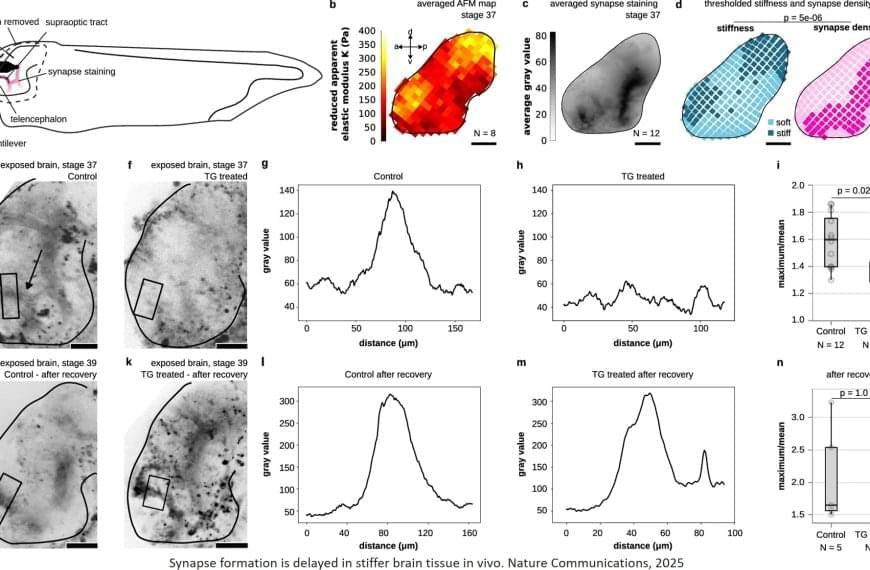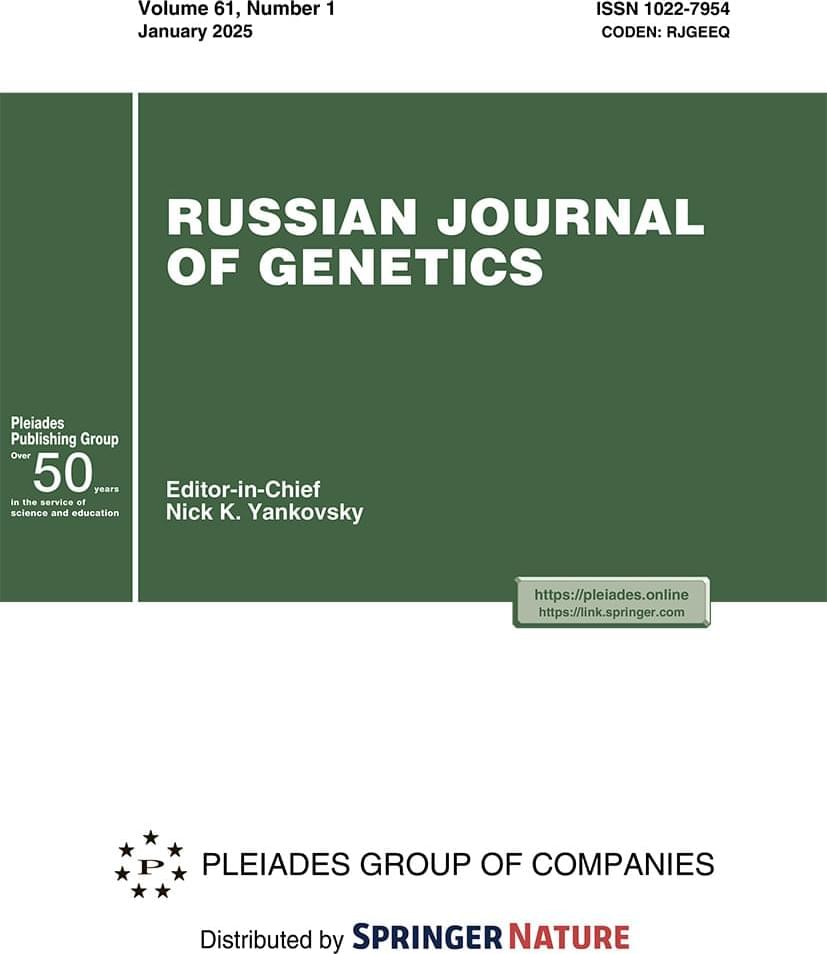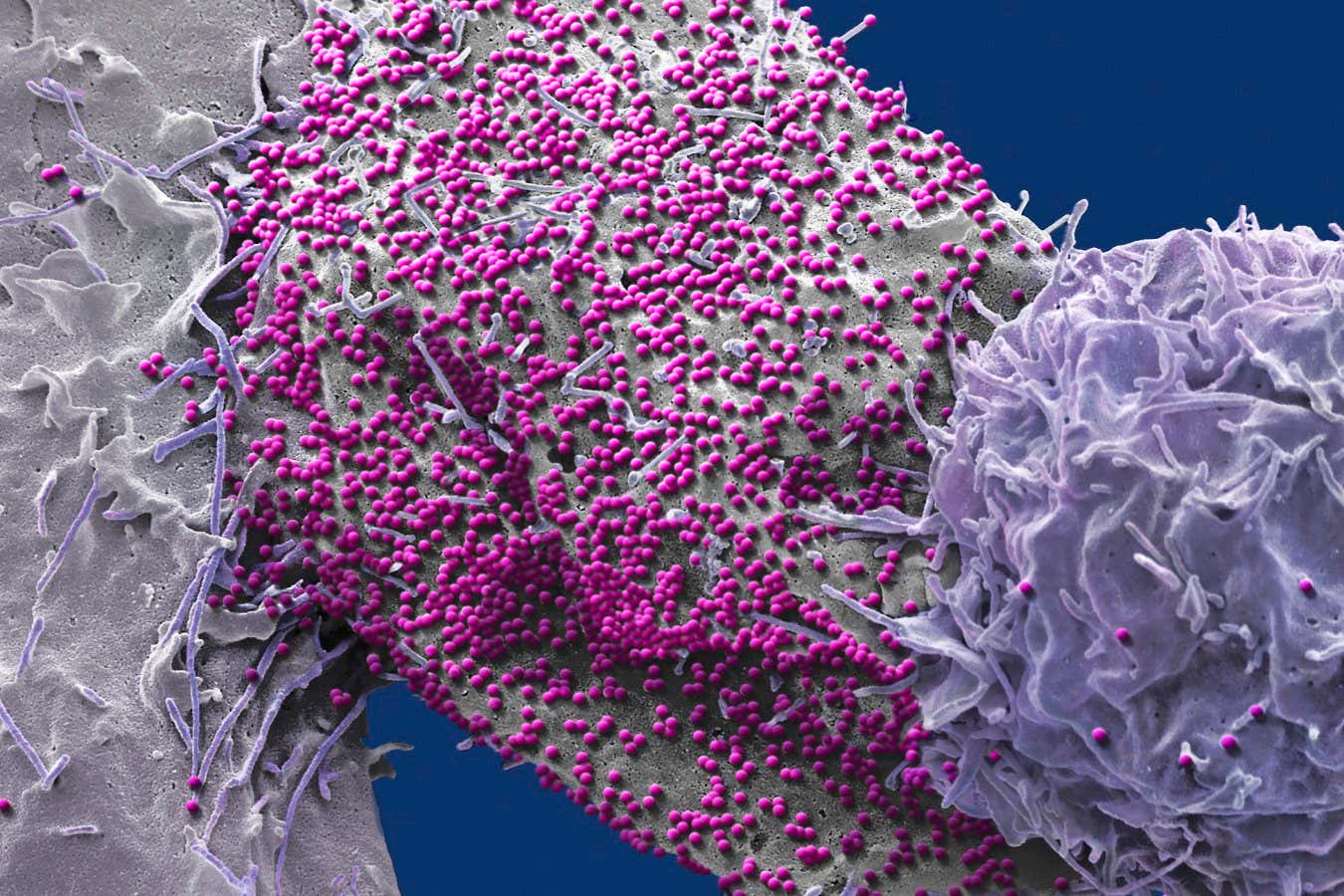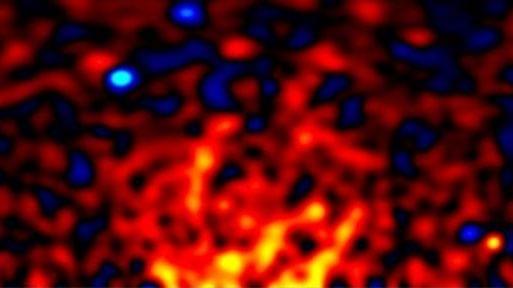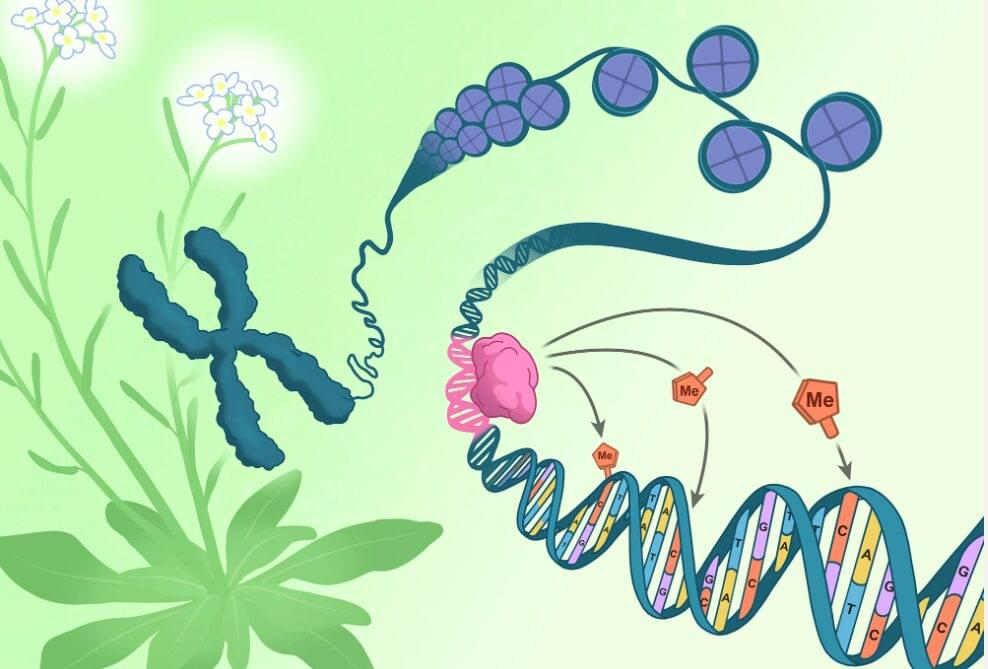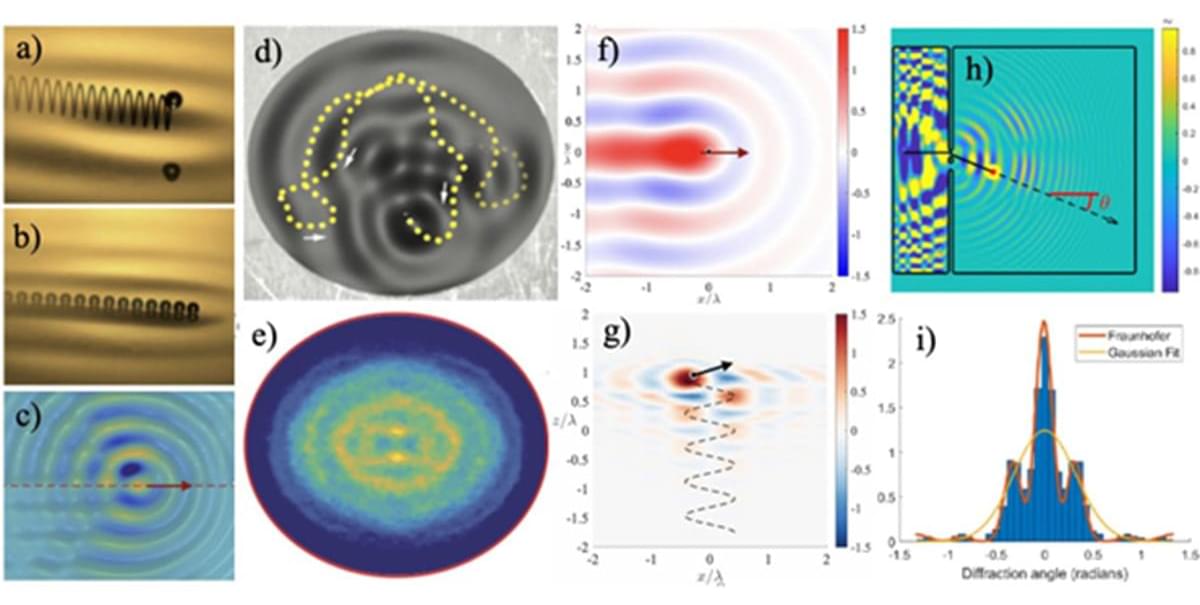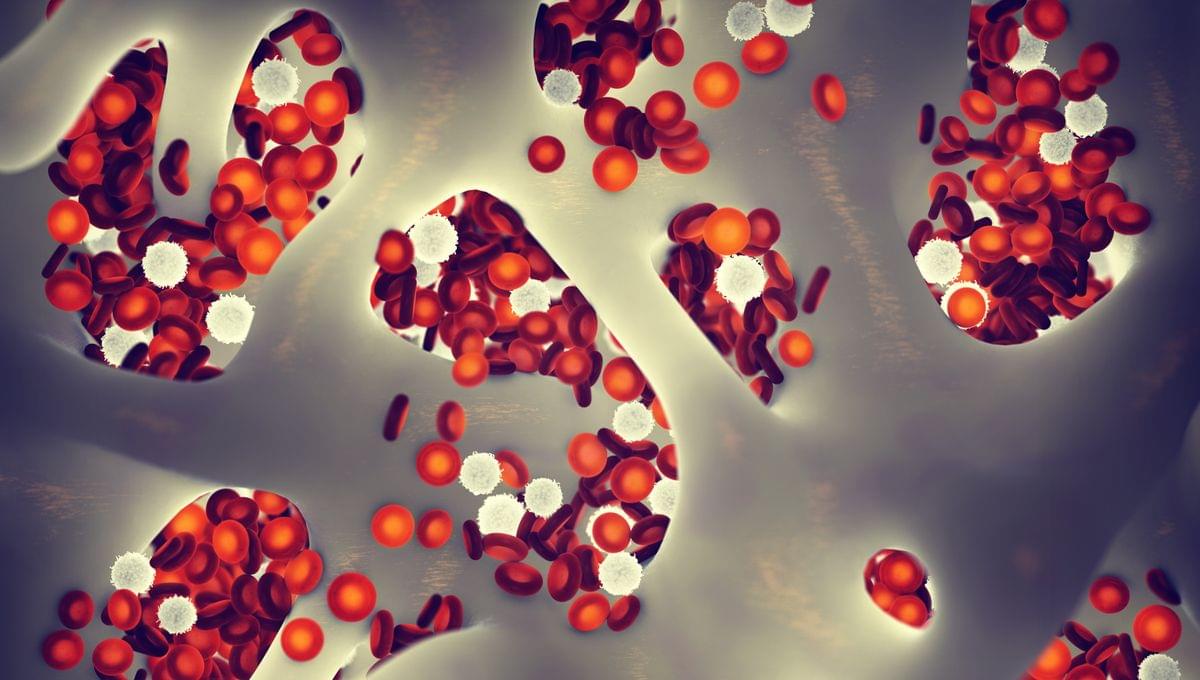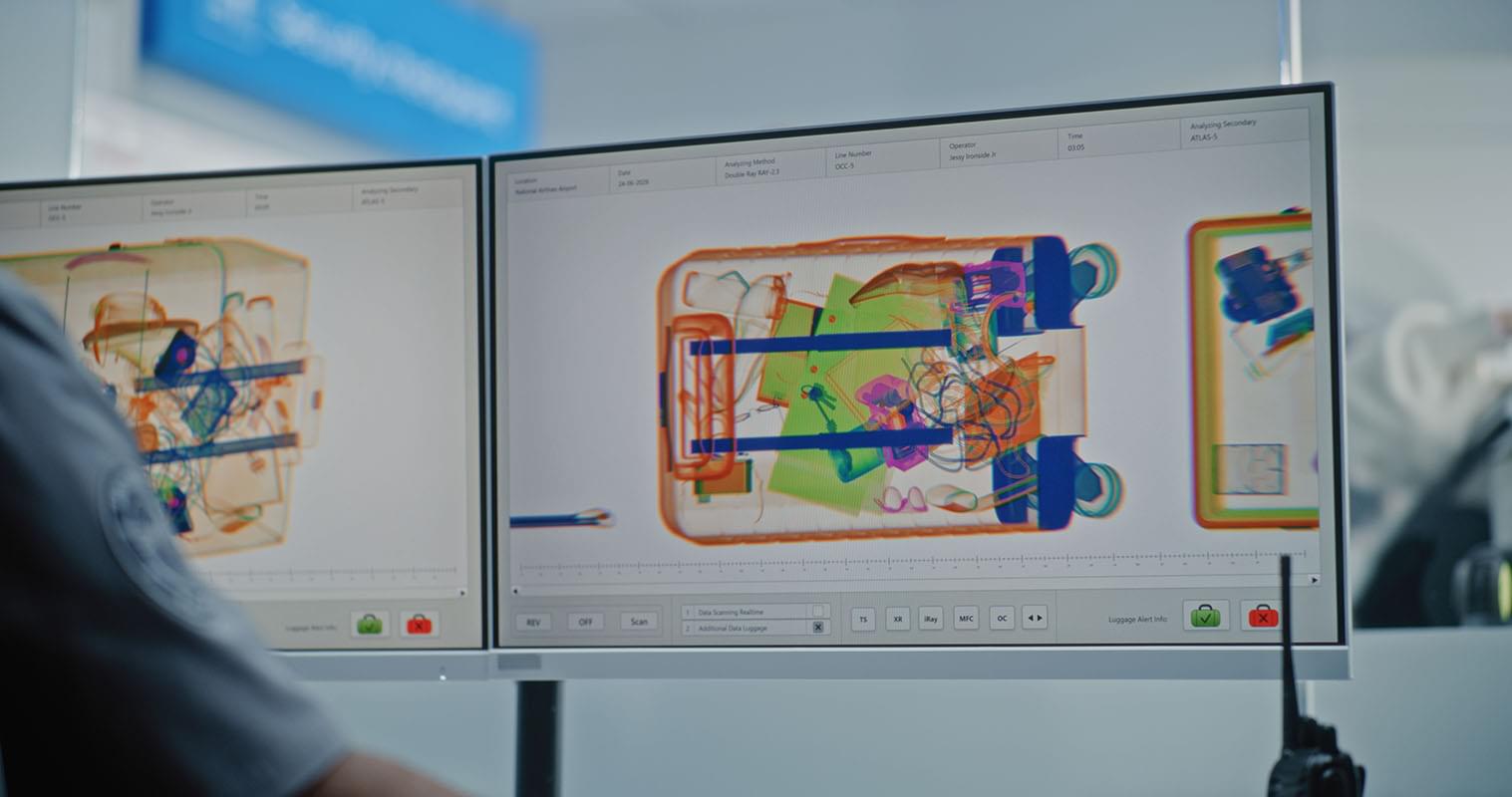When thinking, the human brain performs a true masterpiece of information processing: around 100 billion neurons communicate with each other via approximately 100 trillion connections. An international team of researchers has discovered that the mechanical properties of the developing brain influence both synapse formation and the emergence of electrical signals. The findings could open up new approaches to understanding neurodevelopmental disorders.
In the brain, highly specific connections called synapses link nerve cells and transmit electrical signals in a targeted manner. Despite decades of research, how synapses form during brain development is still not fully understood. Now, an international research team has discovered that the mechanical properties of the brain play a significant role in this developmental process. In a study recently published in Nature Communications, the scientists showed how the ability of neurons to detect stiffness is related to molecular mechanisms that regulate neuronal development.
The developing brain is generally very soft, like cream cheese, but its stiffness varies across regions. In African clawed frog (Xenopus laevis) embryos, the researchers found that softer regions exhibit higher synapse densities, while stiffer regions show lower densities.
